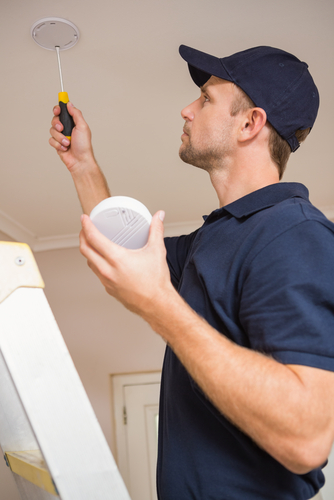Written on: December 7, 2020

According to the Centers for Disease Control, more than 400 people die from carbon monoxide poisoning, and about 50,000 end up in the emergency room, each year.
When carbon monoxide builds up in your blood, it starts to replace the oxygen in your red blood cells. That CO eventually begins starving critical organs like your brain, heart, and lungs of oxygen. This oxygen deprivation can cause serious, potentially permanent, injury or death.
Many carbon monoxide poisonings happen at night when people are sleeping. That’s why it is often referred to as a “silent killer”: CO can reach dangerous, even deadly, levels in people’s blood before they feel any symptoms.
Winter is the most dangerous time for CO poisoning, as we are indoors more, with our heating systems running and our windows closed.
CO poisoning can cause serious long-term health problems, as vital organs like the heart, lungs, and brain are starved of oxygen by carbon monoxide.
Cognition may be impacted, and there could be long-term brain damage. Heart damage can lead to life-threatening cardiac conditions, according to the Mayo Clinic. Pregnant women are not only more vulnerable to CO poisoning themselves, but there is also a risk of miscarriage, stillbirth, or other fetal injuries.
The symptoms of CO poisoning are often described as “flu-like,” and include:
Carbon monoxide is a normal part of the combustion process inside your home’s heating system. If your furnace or boiler is working properly, the CO it generates is contained within the heat exchanger, then vented safely out of your home.
The most common cause of heating system-related carbon monoxide leaks are cracks in the heat exchanger or flue exhaust vent. Another cause may be dirty components of the heating system, like a filter.
An annual maintenance tune-up by a trained, experienced service technician is essential. They carefully inspect your heating system, so these problems can be discovered and fixed before they become dangerous.
The very first line of defense when it comes to preventing CO buildup in your home is installing carbon monoxide detectors on every level of your home, including the basement, and outside all sleeping areas. Make sure that they are installed according to the manufacturer’s instructions.
Inspect and test your CO detectors twice a year when you change your clocks. Carbon monoxide detectors must be replaced every five years. If you don’t know how old your CO detector is, don’t take a chance. Replace it.
Using propane safety best practices is essential if you use propane in your home.
We strongly urge you to install a propane gas leak detector in your home as a backup in case something like rust inside your propane tank inhibits the rotten-egg smell of propane. These propane gas leak detectors are available at your local hardware or home improvement store, or online, and are reasonably priced.
NEVER use your gas range or oven as supplemental heating. And NEVER use propane gas equipment such as grills or portable generators indoors, or in enclosed or poorly ventilated spaces such as garages, carports, and sunporches.
Contact us with any questions you have about propane safety!